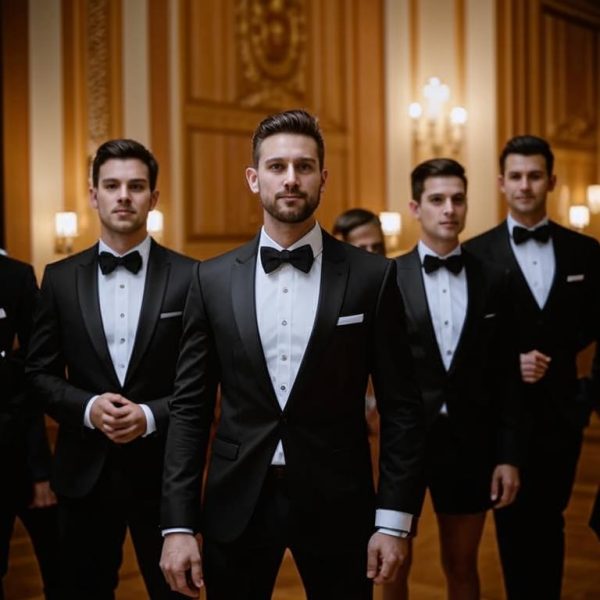Russian oligarchs refers to a group of businessmen from the post-Soviet space who made their fortunes in the 1990s after the collapse of the Soviet Union. They own large industrial enterprises, media empires and financial organisations.
Such business oligarchs are linked with political elites, and it is believed that they use their capital to lobby for personal business interests: they influence the economy and decisions of state importance. But is modern Russia an oligarchic state? We explore this in this Russiasrichest article.

What is oligarchy and where did it come from
Oligarchy is a form of government in which the upper echelons of the state are represented or controlled by a small group of very powerful people. The literal translation of this word from ancient Greek means “the power of the few”.
It was first coined by Aristotle and Plato. The ancients themselves defined oligarchy as “a system based on property values in which the rich have power and the poor do not participate in government”.
Classic examples of oligarchy in history are the ancient Greek polities of Athens and Sparta. The former had a democratic system most of the time, but occasionally isolated elites rose to power.
In 411 BC, for example, Athens was ruled by an association of 400 representatives of the military upper class. The distribution of handouts to the poor and the convening of popular assemblies were restricted, and a property tax was introduced. This system was then replaced by a hybrid system in which power was concentrated in the hands of 5,000 of the most heavily armed citizens, and a total of 9,000 people became full participants in the political process. Athens later regained full democracy.
In Sparta, however, the oligarchic system was always in force. Authority was held by a small group of people, no more than 40, most of whom ruled for life. Although there was a popular assembly of Spartiates over the age of thirty, it is believed that they only approved the decisions of the upper class.
Who are the Russian oligarchs
In order to shape modern oligarchs Russia has come a long way. It is easier to understand what kind of people they are, how they came to be and what kind of power they wield today if we break the story down into stages. At each stage, Russian oligarchs had different political clout, took new risks with their businesses and their lives, and the international community’s assessments of them were often unpredictable.
Oligarchs in the early 1990s: the first wave of privatisation
In 1991, the collapse of the USSR brought to an end the perestroika initiated by the final Soviet leader, Mikhail Gorbachev. For half a decade before this event, the Soviet Union had been undergoing changes in its political and administrative structure as the country transitioned to a market economy. There were constant changes in government personnel.
By this time, the state had accumulated a number of problems, from falling oil production and declining exports to consumer market deficits and the very real threat of mass famine. Then, in 1991, Russia replaced the USSR and Gorbachev was replaced by Boris Yeltsin.
The new government had to act and began privatisation processes in which state property became private. This was the first stage in the birth of the Russian oligarchy.
Every resident of the country received a voucher with a nominal value of 10,000 roubles. It could be exchanged for shares in companies or simply sold. The most enterprising citizens bought vouchers from the population and used them to buy shares in companies.
In the first wave, before 1994, 112,600 enterprises were privatised, or 70% of all enterprises. Small businesses in the service, trade, and consumer sectors were either handed over to their owners or auctioned off.
At the same time, voucher investment funds were set up to buy up vouchers and resell shares in various companies. One such fund was Alfa Capital, run by Mikhail Fridman and his partners. The company later became one of the key pillars in the business empire of Alfa-Bank, one of Russia’s largest private banks.
Oligarchs in 1995-1998: from collateral auctions to a default
The closest to the classical embodiment of the definition of “oligarchy” Russia was in the mid-1990s. At that time, the concept of “semibankirshchina” (synonymous with the historians’ term “semiboyarshchina”, meaning the period of rule of seven boyars in the history of medieval Russia) was widely disseminated in the media and then into the general public.
This was a time when the country’s largest financial organisations had gained political weight thanks to their assets in mass media, which allowed them to influence public opinion. The official authorities saw who Russian oligarchs are, and that they are a force to be reckoned with and cooperated with.
These business oligarchs got rich from collateral auctions, the largest of which took place in the second wave of privatisation in 1995. The following scheme was used: commercial banks granted loans to the state against the pledge of state stakes in large companies. The right to issue a loan was determined through auctions. If the state did not repay the funds after a set period of time, the shares were transferred to the ownership of the creditors.
This is how such companies as Yukos, Nornickel, Sibneft, Surgutneftegaz and others were privatised. According to some estimates, the average discount that Russian oligarchs received from these deals was 50%. That is, the assets were delivered to the new owners at half the price.
At the same time, the electoral cycle in Russia was coming to an end with the elections to be held in 1996, and the incumbent government headed by Boris Yeltsin realised that they did not have the strong support of the public. The presidential campaign marked a new stage of rapprochement between the government and business, with Yeltsin meeting with a group of banking executives and promising them concessions in exchange for funding.
Yeltsin won the presidential election in June 1996, and in November the Financial Times published an interview with one of those bankers, Boris Berezovsky. He provided insight into what is an oligarch in Russia. According to Berezovsky, at that time 50% of the country’s economy was controlled by a group of seven people, including him.
The list of oligarchs who influenced major domestic political decisions also included Vladimir Potanin, Vladimir Gusinsky, Mikhail Khodorkovsky, Pyotr Aven, Mikhail Fridman, and Alexander Smolensky. The government relied on the support of these men and other credit organisations up until 1998.
The default that began in 1998 marked the state’s abandonment of its financial obligations, including to corporations. Because of this, many credit organisations went bankrupt. According to the Moscow Commercial Bank’s calculations, of the $96 billion that the Russian economy lost due to the crisis, banks accounted for $45 billion.

Oligarchs in 2000-2008: from a new president to a new crisis
In 2000, Vladimir Putin became the president of Russia. The so-called equidistance of Russian oligarchs was announced, a process to reduce the influence of rich people on the political process and government decisions. It is believed that during this period the government ceased to be an equal partner of businesses and began to dominate the economy.
The reorientation of financial organisations towards the industrial sector, which had begun because of the default, grew stronger. Moreover, entrepreneurs began to develop new sectors of the economy.
This was primarily fuelled by rising prices for the main export commodities — oil, gas and metals. While in the early 2000s there were about 25 large companies with revenues above $500 million, by 2007 there were 10 times as many.
Secondly, market relations became fully functional, and ownership became the only condition for consolidation of assets. Businessmen began to adopt approaches from foreign markets and enter industries with stable domestic demand, with major players appearing in retail, telecoms and the food industry.
Thirdly, in the face of the oligarchs’ business, Russia joined the London Stock Exchange. Between 2001 and 2007, the volume of foreign investment rose from $14.3 billion to $121.1 billion. In addition, Russian corporations have been successfully expanding abroad. Some companies expanded into neighbouring Ukraine and Kazakhstan, while others acquired billion-dollar assets in the US and Europe.
Is Russia an oligarchy at this stage? What is a Russian oligarch of this period?
The number of opportunities for shadow lobbying for business was greatly reduced. However, public organisations were established to bring the consolidated opinion of corporations to the representatives of the state. The high-profile “Yukos affair” can be considered the most important point in the nationalisation and concentration of assets in the hands of the authorities.
In 2003, Mikhail Khodorkovsky and Platon Lebedev, who headed Yukos and the related bank Menatep, were arrested. The businessmen were subsequently sentenced to actual imprisonment and the company’s assets went up for auction. The main beneficiary was state-owned Rosneft.
Other Russian oligarchs such as Vladimir Gusinsky and Boris Berezovsky fled the country. The latter later died in England under suspicious circumstances. It is believed that during this period Putin reshaped the composition of the oligarchic elites. The new roster includes either those who remained fully loyal to the president or his closest associates, friends and former colleagues.
The top ten most prominent Russian oligarchs of the early Putin era include Roman Abramovich, Oleg Deripaska, Mikhail Prokhorov, Alisher Usmanov, Viktor Vekselberg, Leonid Mikhelson, Arkady Rotenberg, Gennady Timchenko, Andrey Guryev, and Vitaly Malkin.
The 2008 crisis only reinforced these trends and the role of power in the economy. A key role in Russia’s relative stability in this matter was due to oil prices, with the state controlling about 40-45% of oil production by that time.
Oligarchs of the last 15 years: from one sanction to another
Wherever Russia’s evolution goes, the oligarchs follow it as an inseparable part of its history. The first period after the 2008 crisis saw rapprochement with the West. In 2012, the country joined the World Trade Organisation, which significantly reduced the import tariff rate.
Despite the fact that the role of the state in the economy was growing, while private business had fewer opportunities and average annual growth rates declined, some corporations managed to break into the top of global rankings in terms of shareholder value creation. These included Sistema, Magnit, Severstal, Bashneft, Novatek, and Sberbank.
At the same time, a number of laws were passed that affected Russian oligarchs. In 2013, the authorities banned officials from owning property abroad. For example, Andrey Molchanov, owner of one of the largest property developers, and Andrey Guryev, founder of the Russian agrochemical giant, were excluded from the senators’ roster.
A law passed in 2014 on the deoffshorisation of the Russian economy restricted business opportunities with foreign companies and transactions through foreign jurisdictions, and the flow of funds from offshore into the country increased dramatically. The Western sanctions imposed after the events in Ukraine also kicked in. They effectively cut off Russian oligarchs from the US and EU capital markets.
The country’s economy suffered, by 2017 it had shrunk by $170bn due to the sanctions. At the same time, business owners became hostages of their empires. No matter where they wanted to go, these oligarchs, Russia kept his capital firmly within its borders. The reluctance to say goodbye to money would play a key role when new sanctions were imposed after the events of 2022.
After the military operation began, the combined fortunes of Russia’s richest individuals had already almost halved by April 2022, from $606bn to $353bn. At the same time, in fear of losing even more, many of them have not decided to break off relations with Russia. By mid-2024, major businessmen who dared to take such a step were in the single digits. These include, for example, Oleg Tinkov, Arkady Volozh, and Yuri Milner.
Most of these people openly or indirectly expressed disagreement with the government’s policy towards Ukraine. Many of them lost their business empires.